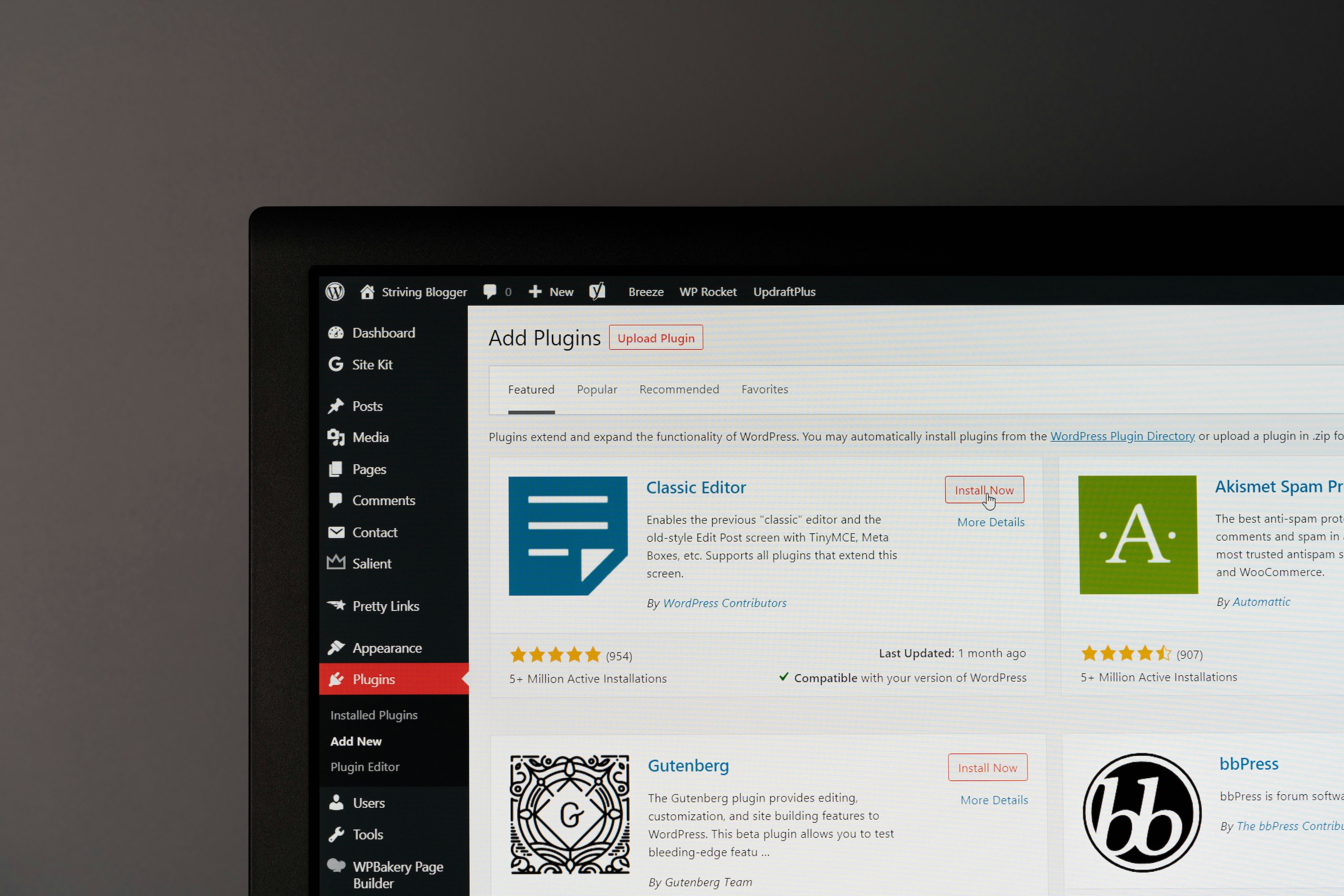The rise of platforms like Amazon, Etsy, and Fiverr has inspired a wave of entrepreneurs to build their own multi-vendor marketplaces. Whether you’re launching a niche product hub or a large-scale global marketplace, choosing the right platform is critical, and not all multi-vendor solutions are created equal.
While many platforms claim to support marketplace functionality, few deliver the tools needed for serious vendor management, streamlined payments, and long-term scalability. Features like automated commission splitting, vendor dashboards, and custom branding vary widely across platforms.
This guide compares 10 of the best multi-vendor eCommerce platforms, ranging from hosted solutions like Shopify to open-source frameworks like WooCommerce. Each option is assessed for its vendor features, pricing transparency, and suitability for different business models (B2B, B2C, niche).
By the end, you’ll have a clear sense of which platform best fits your marketplace vision.
Key Takeaways
- Pick for vendor ops, not hype — prioritize platforms with vendor dashboards, onboarding/approval flows, order-splitting, and automated commissions to keep marketplace ops scalable.
- Match business model to stack — hosted (Shopify/BigCommerce) + app = speed and simplicity; open-source (WooCommerce+Dokan, Bagisto, CS-Cart) = control, extensibility, and lower long-term platform risk.
- Payments make or break it — look for split payouts (Stripe Connect/Mangopay/PayPal), tiered or per-category commissions, and automated vendor settlements to reduce manual finance work.
- Performance + UX drive GMV — combine a lightweight theme (e.g., Blocksy) with CDN/caching and a clean language/currency strategy to maximize conversion across vendors and geographies.
- Plan for growth from day one — confirm product/vendor limits, API depth, and headless options so you can add B2B features, subscriptions, wholesale pricing, mobile apps, and new geographies without a replatform.
What to Look for in Multi-Vendor eCommerce Platforms
Marketplaces are deeply embedded in buyers’ habits — about 40.4% of U.S. online shopping journeys start on a marketplace. So your choice of multi-vendor infrastructure isn’t just a feature decision — it affects how and where your audience finds you.
Choosing the right multi-vendor eCommerce platform isn’t just about checking off a feature list. It’s about finding a solution that fits your marketplace’s workflow, growth plans, and management needs. Here are the core features to evaluate before committing:
- Vendor Management Capabilities: A good platform should offer robust vendor onboarding, approval workflows, and independent dashboards. Look for systems that let vendors manage their own products, track earnings, and handle customer queries without needing admin intervention.
- Commission and Payment Systems: Whether you’re using fixed commissions, tiered rates, or subscription-based vendor plans, your platform should support flexible payment structures. Automated payouts, split payments, and integrations with major gateways are essential for smooth financial operations.
- Product and Inventory Management: Vendors need intuitive tools to add and update products. Features like bulk uploads, vendor-specific catalogs, and real-time inventory tracking help streamline catalog management.
- Order Management: Multi-vendor order splitting, shipping coordination, and fulfillment tracking are must-haves. Your platform should route orders appropriately and keep both vendors and customers informed throughout the process.
- Customization Flexibility: Your marketplace should reflect your brand. Look for platforms that allow theme customization, vendor-specific storefronts, and support for custom fields or workflows. Compatibility with high-performance themes like Blocksy can significantly improve both vendor and customer experience.
- Scalability: As your marketplace grows, the platform must handle increased traffic, more vendors, and a higher transaction volume. Check for vendor or product limits, and look into performance under load.
- Integration Capabilities: Finally, seamless integration with payment processors, shipping services, marketing tools, and analytics platforms is key. The right integrations reduce admin overhead and improve the vendor experience.
Best Multi-Vendor eCommerce Platforms
These platforms represent a mix of hosted solutions, open-source frameworks, and specialized marketplace platforms that can support multi-vendor functionality.
Shopify
G2 Rating: 4.4 based on 5,872 reviews
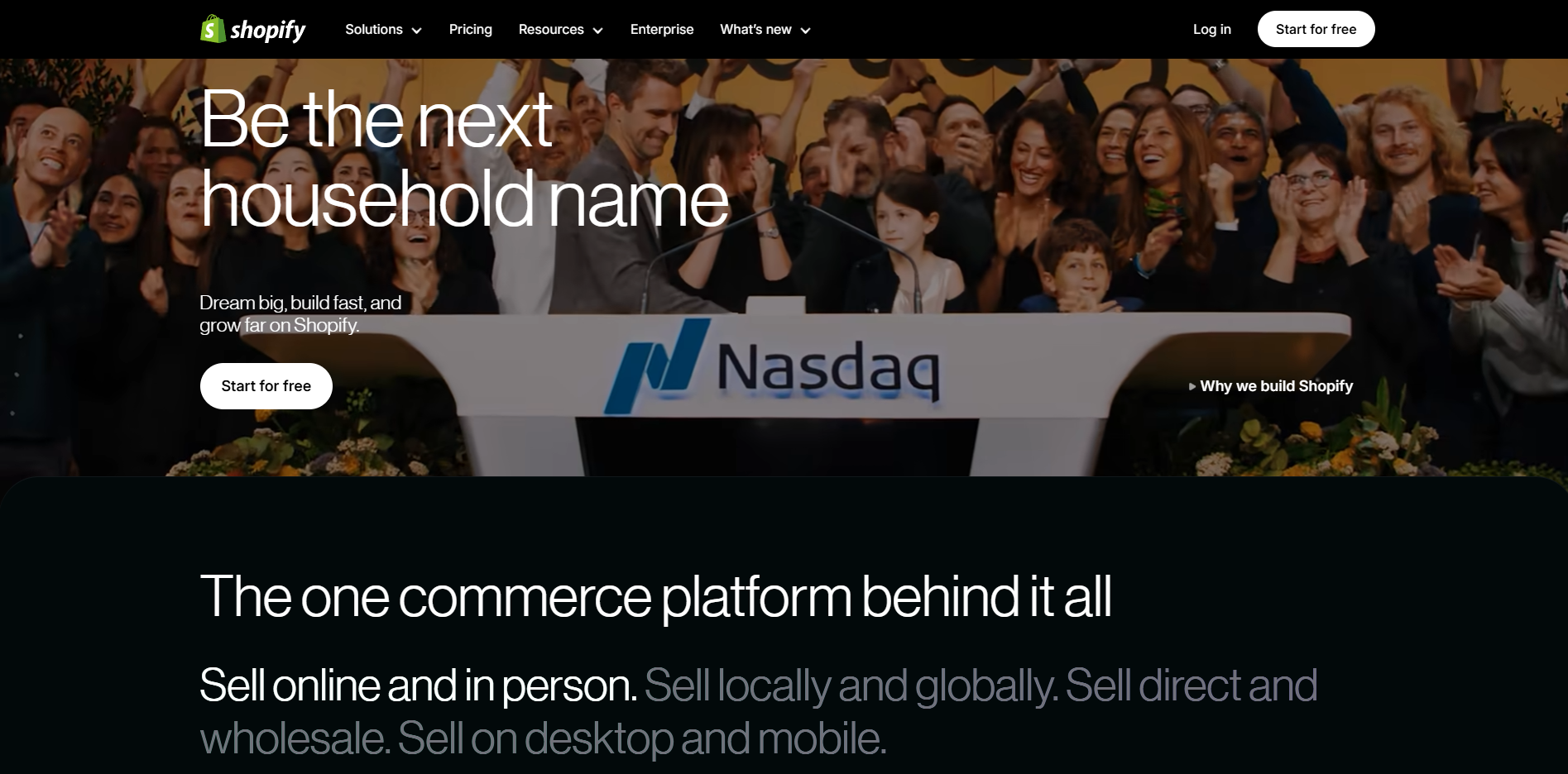
Shopify is a leading hosted eCommerce platform that simplifies setting up and managing an online marketplace. While primarily designed for single-vendor stores, its multi-vendor capabilities can be extended through apps like Multi-Vendor Marketplace. Shopify excels in ease of use, scalability, and a vast app ecosystem, making it ideal for entrepreneurs who want a user-friendly solution with robust customization options.
Highlights:
- Intuitive drag-and-drop tools and AI-powered design features make store setup effortless.
- Access 13,000+ apps, including multi-vendor solutions, to expand functionality.
- Shopify’s checkout converts 15% higher on average, optimizing sales.
- Supports international sales, multi-channel selling, and enterprise-grade growth.
Pricing:
Shopify offers four main plans: Basic ($29/month), Grow ($79/month), and Advanced ($299/month), billed annually. High-volume businesses can opt for Plus (custom pricing, ~$2,300/month). All plans include 24/7 support, multichannel sales, and POS integration. A 3-month trial starts at $1/month.
BigCommerce
G2 Rating: 4.2 based on 547 reviews
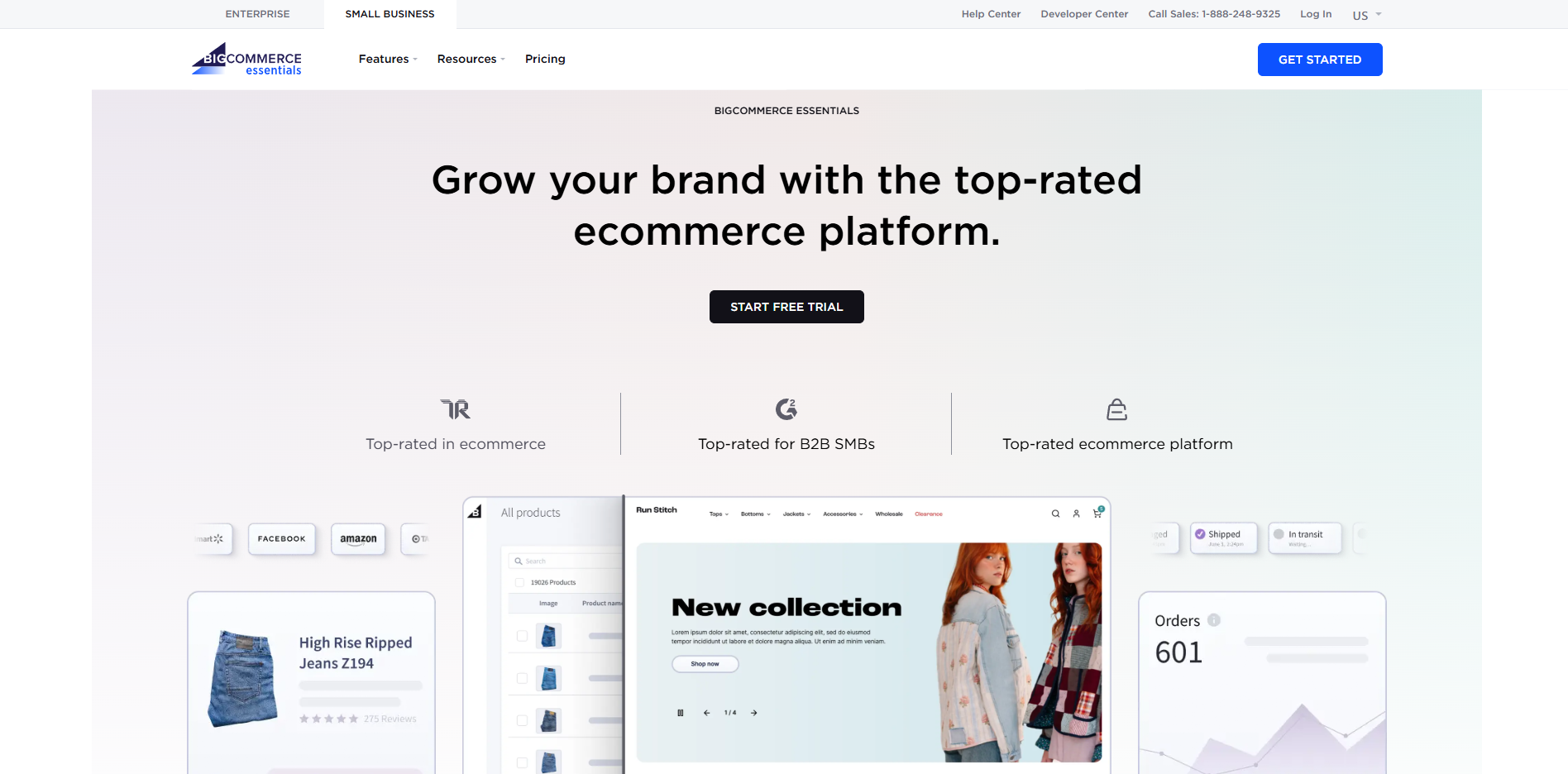
BigCommerce is a scalable eCommerce platform that supports multi-vendor marketplaces through third-party apps like MultiVendor Marketplace. While not natively built for marketplaces, its robust API, headless capabilities, and extensive app ecosystem enable businesses to create customized vendor-driven stores. Ideal for B2B and B2C sellers, BigCommerce offers high performance, payment flexibility, and global selling tools, making it a strong choice for brands aiming to scale.
Highlights:
- Extend functionality with the MultiVendor app for vendor dashboards, commission management, and seller subscriptions.
- Handles high traffic and complex workflows with 99.99% uptime and built-in CDN.
- No transaction fees and 100+ gateway integrations (example: PayPal, Stripe) for flexible vendor payouts.
- Supports omnichannel selling and custom frontends (React, Vue) for unique marketplace experiences.
Pricing:
BigCommerce offers four plans: Standard ($29/month, up to $50K revenue), Plus ($79/month, up to $180K), Pro ($299/month, up to $400K+), and custom Enterprise solutions. All include 0% transaction fees, multichannel sales, and 24/7 support. A 15-day free trial is available.
Dokan
G2 Rating: 4.6 based on 11 reviews
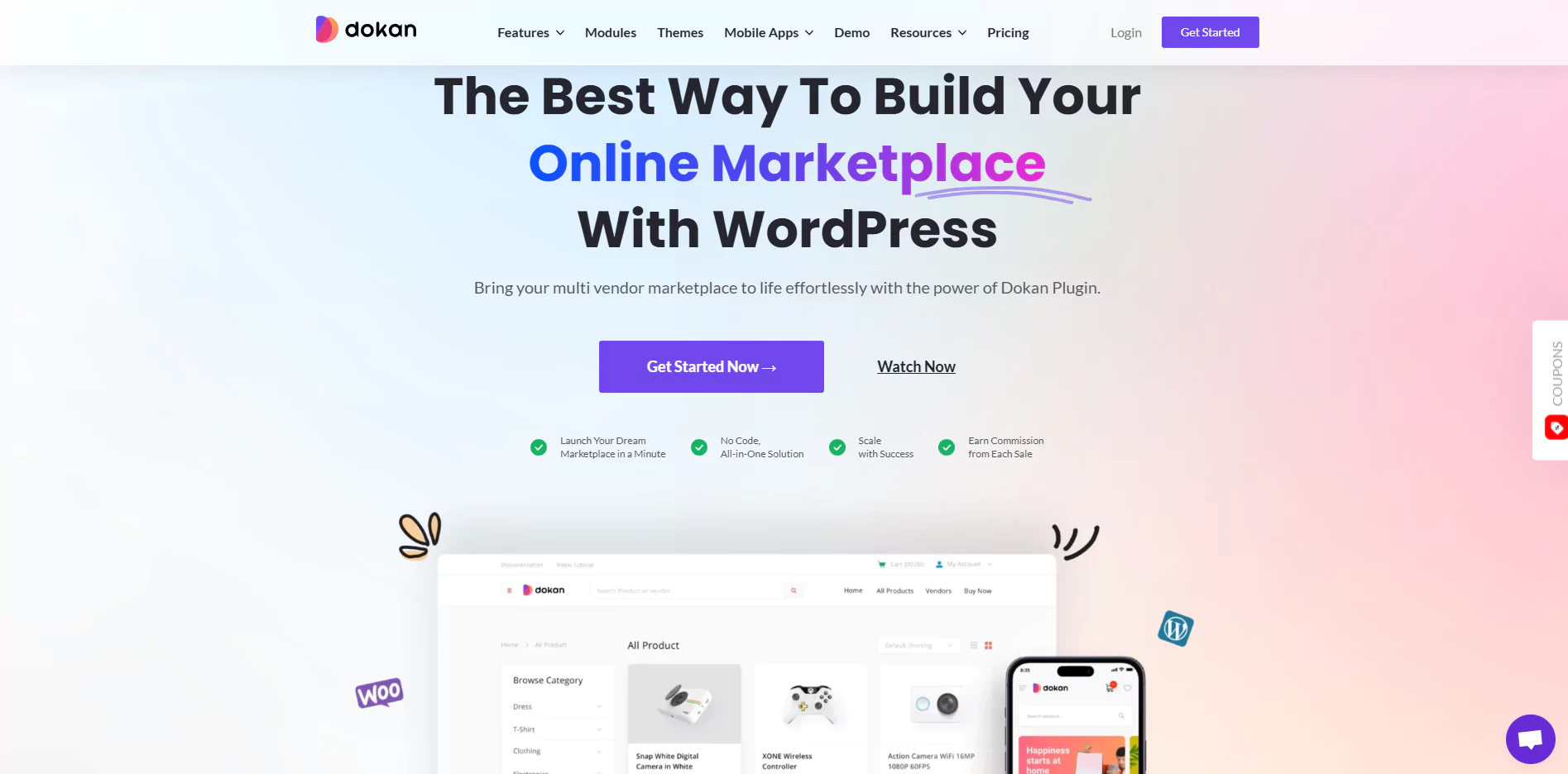
Dokan is a powerful WordPress-based multi-vendor plugin that transforms WooCommerce into a full-fledged marketplace. Designed for ease of use, it enables vendors to manage their stores independently while admins retain full control over commissions, payments, and store policies. With frontend dashboards, flexible commission structures, and seamless WooCommerce integration, Dokan is ideal for entrepreneurs who want a self-hosted, customizable marketplace solution.
Highlights:
- Vendors get personalized storefronts with frontend product management, order tracking, and earnings reports.
- Admins can set percentage-based, flat-rate, or tiered commissions for vendors.
- Leverages WooCommerce’s ecosystem while adding multi-vendor features like bulk editing, shipping management, and social login.
- Offers 40+ premium add-ons (example: Stripe Connect, subscriptions, wholesale) to enhance functionality.
Pricing:
Dokan offers tiered plans for WordPress multivendor marketplaces: Free (basic features), Starter ($149/year), Professional ($249/year), Business ($499/year), and Enterprise ($999/year). Higher tiers include advanced modules (example: Stripe, subscriptions), multi-site licenses, and priority support. A 14-day refund policy applies. Ideal for scalable vendor-based stores.
Bagisto
Trustpilot Rating: 4.9 based on 382 reviews
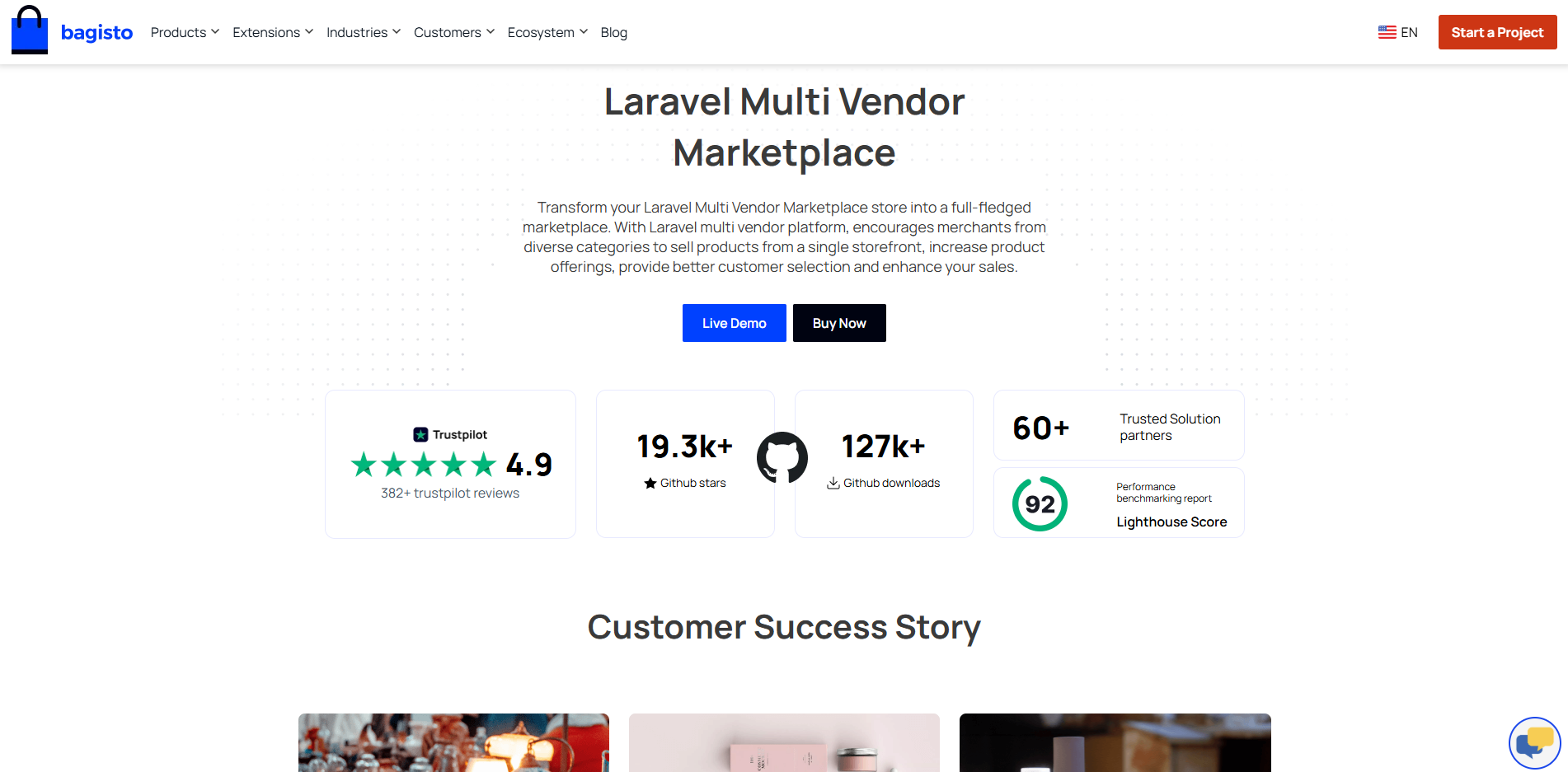
Bagisto is a Laravel-based open-source multi-vendor marketplace platform designed for developers and businesses seeking full customization. Built on modern PHP frameworks, it offers scalability, modular architecture, and robust vendor management tools, making it ideal for niche or large-scale marketplaces. With features like seller price comparisons, auto-approval workflows, and granular commission control, Bagisto empowers admins to create a competitive marketplace while vendors enjoy dedicated dashboards and branding options.
Highlights:
- Self-hosted solution with 100% code access, ideal for tailored marketplace builds.
- Sellers get independent dashboards, shipment management, and review systems to build trust.
- Customers see multiple vendors selling the same product with varying prices and ratings.
- Supports add-ons for SEO, mobile apps, B2B, and more, leveraging Laravel’s flexibility.
Pricing:
Bagisto’s multi-vendor marketplace extension starts at $449 (one-time fee), with optional add-ons like installation ($100) and API support. Admin can set global/individual seller commissions, manage products/orders, and approve vendor profiles. Includes seller dashboards, product types (bundle/grouped), and mobile app compatibility. 3-month free support included. Custom enterprise solutions are available.
CS-Cart
G2 Rating: 4.8 based on 66 reviews
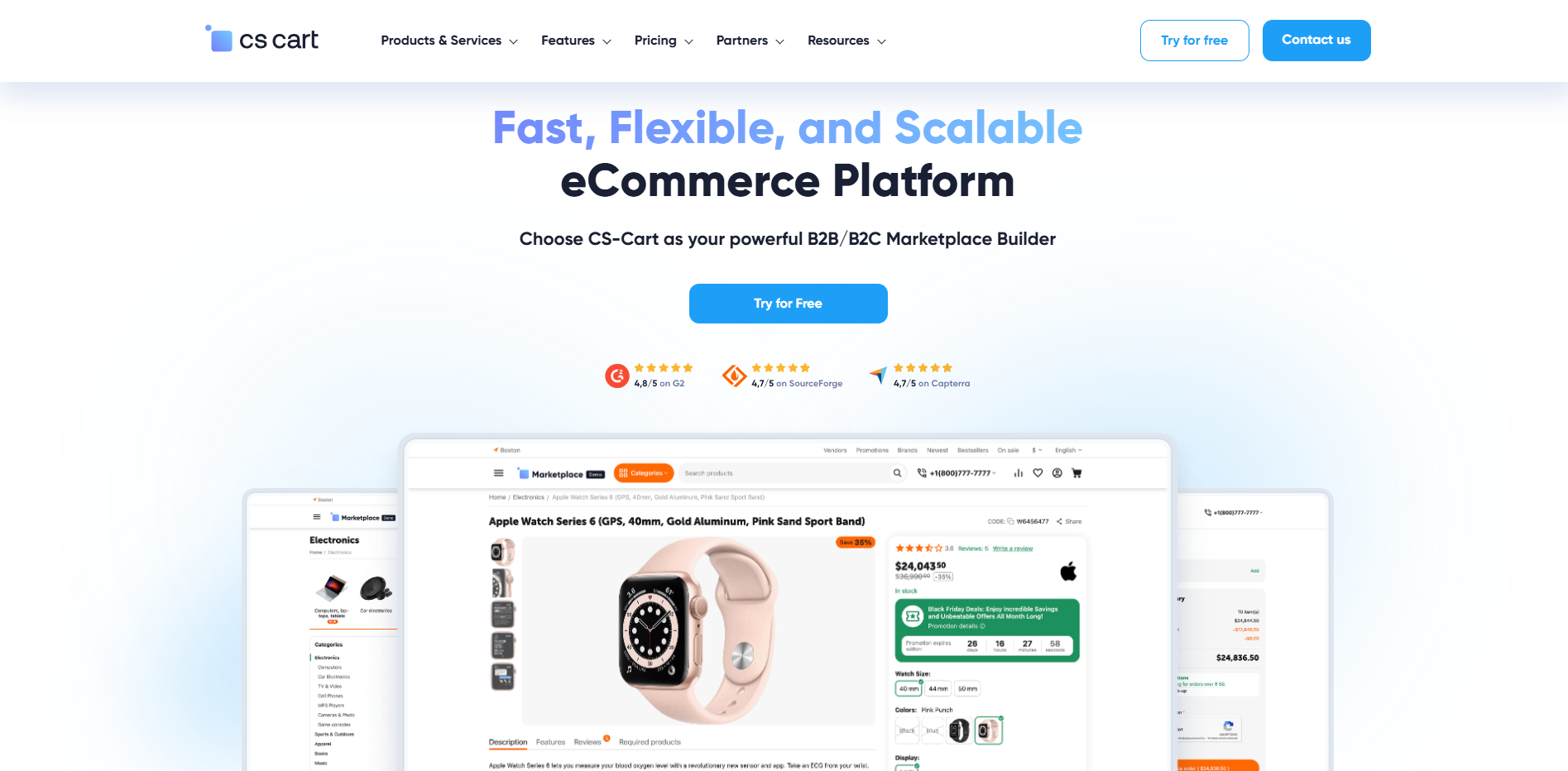
CS-Cart is a self-hosted, multi-vendor marketplace platform designed for businesses that need full control over their marketplace. Built with PHP and MySQL, it offers native multi-vendor functionality, allowing admins to manage vendors, commissions, and product approvals seamlessly. CS-Cart is ideal for niche marketplaces and global B2B/B2C platforms, with features like vendor storefronts, flexible payout systems, and mobile app support.
Highlights:
- Includes built-in vendor dashboards, commission management, and product approval workflows without relying on third-party plugins.
- Admins can set vendor subscription plans, tiered commissions, and automated payouts via Stripe or PayPal.
- Vendors get personalized storefronts, bulk product uploads, and real-time sales analytics.
- Recognized as a leader on G2 and Capterra for its robust features and scalability.
Pricing:
CS-Cart multi-vendor offers flexible pricing: Standard ($55/month), Plus ($110/month), and Ultimate ($275/month) with annual billing, or lifetime licenses starting at $3,299. Features include vendor management, custom commissions, mobile apps, and unlimited products. No transaction fees. 14-day free trial available. Enterprise options include 5-year updates and premium support.
Yo!Kart
G2 Rating: 4.6 based on 34 reviews
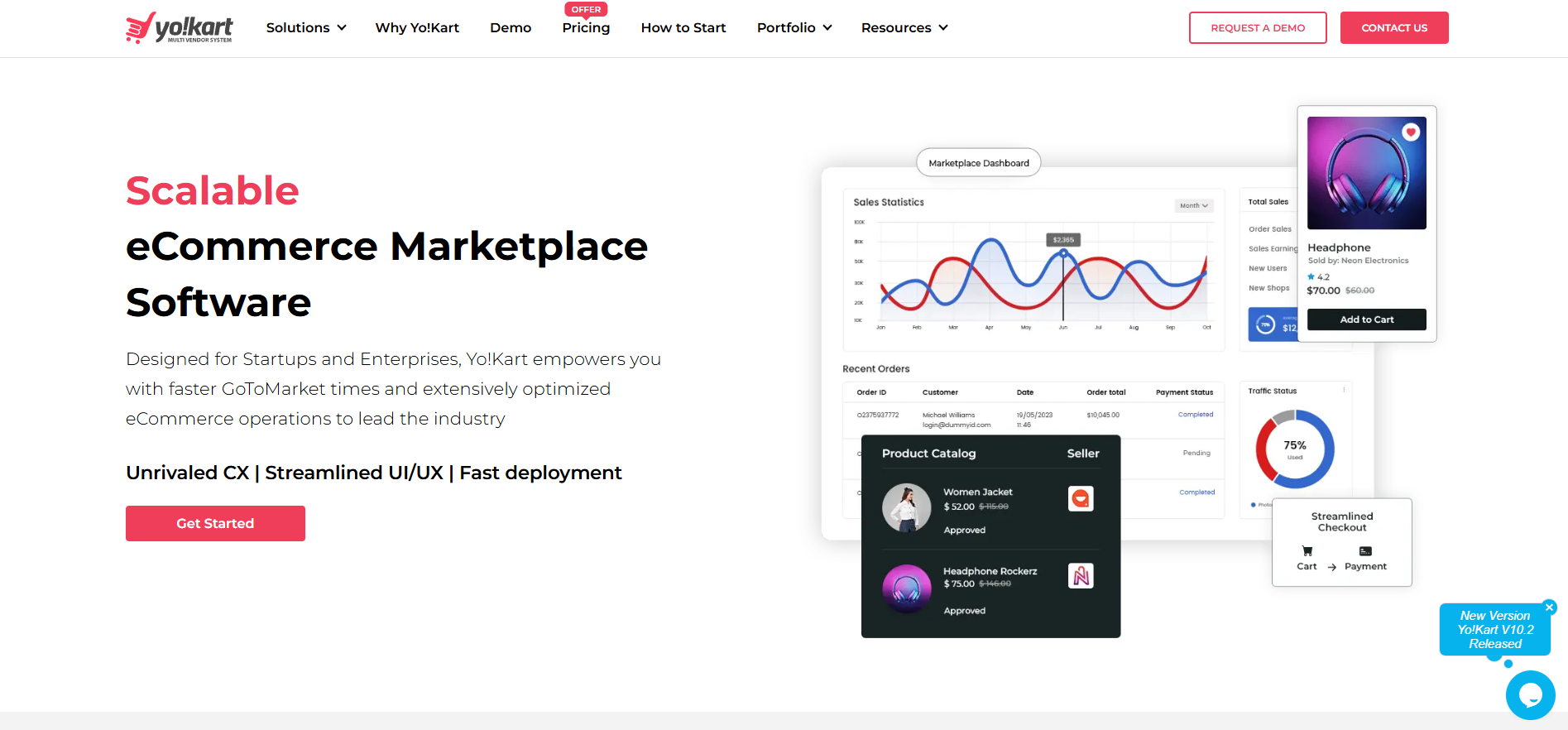
Yo!Kart is a self-hosted, multi-vendor marketplace platform designed for startups and enterprises seeking a scalable, customizable solution. Unlike subscription-based models, it offers a one-time payment with lifetime access, making it cost-effective for long-term growth. Yo!Kart supports B2B and B2C marketplaces across niches like fashion, electronics, and digital goods, with built-in tools for vendor management, payments, and mobile apps.
Highlights:
- No recurring fees, pay once (starting at $499), and own the software forever.
- Tailored for niches like fashion, liquor, and auctions, with age-gating and compliance features.
- iOS/Android buyer/seller apps come pre-built for seamless omnichannel selling.
- Supports 3rd-party API integrations (Stripe, ShipStation) and white-label options for branding.
Pricing:
Yo!Kart offers lifetime licenses: GoQuick Lite ($499), GoQuick ($1,249), and GoCustom ($6,249). Packages include whitelabel solutions, 6-12 months support, and customization. The GoQuick plan (most popular) delivers in 5-7 days. Enterprise GoCustom Prime (custom-priced) adds mobile apps and tailored features. No recurring fees.
Growcer
G2 Rating: 4.4 based on 11 reviews
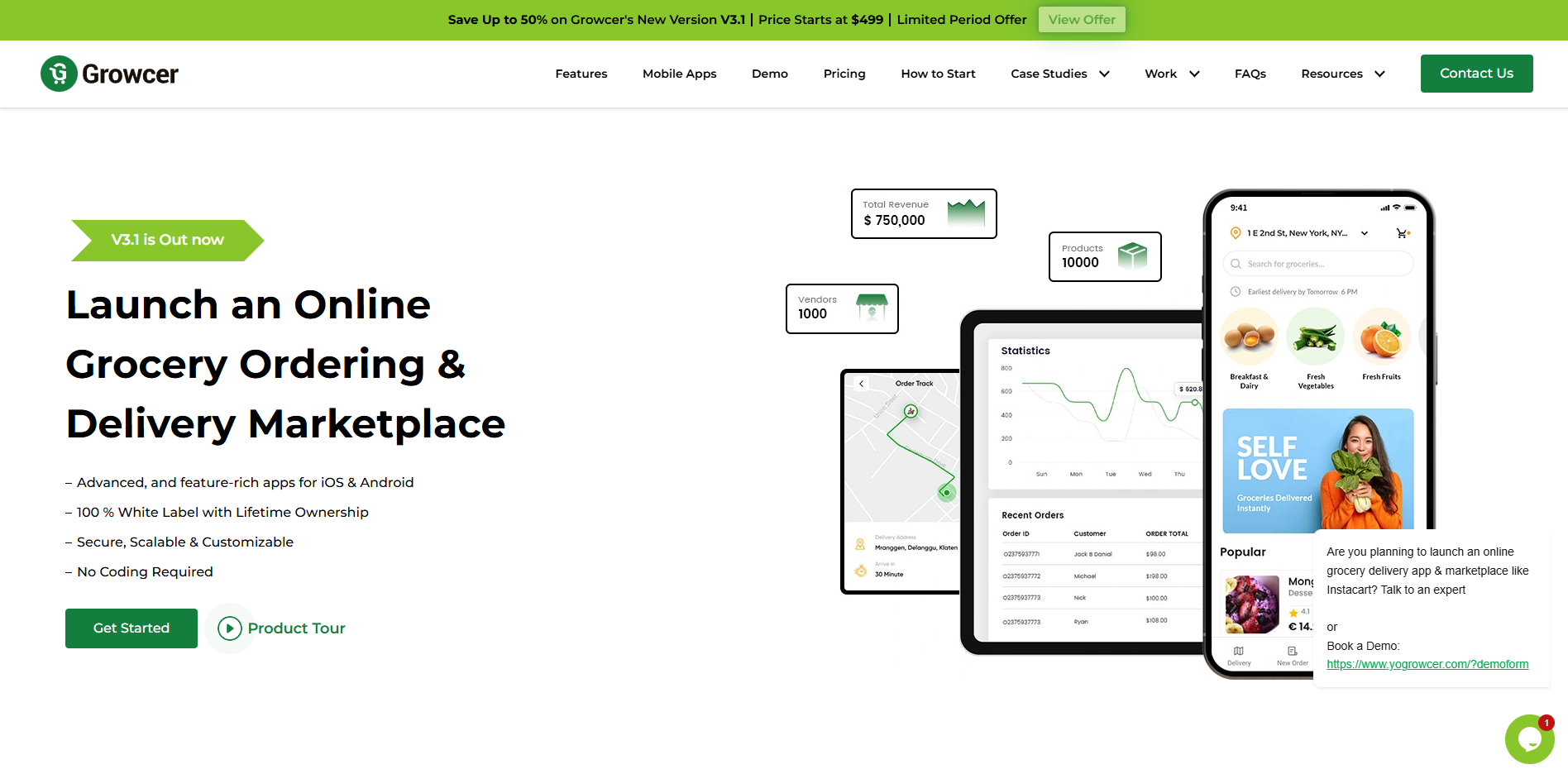
Growcer is a white-label, multi-vendor grocery marketplace platform designed for entrepreneurs and businesses looking to launch online grocery delivery services. Developed by FATbit Technologies, it supports hyperlocal, B2B, B2C, and inventory-based models, with features like real-time delivery tracking, subscription plans, and mobile apps.
Highlights:
- Tailored for grocery, pharmacy, and liquor delivery with age-gating and compliance features.
- Includes iOS/Android apps for buyers, sellers, and delivery staff with GPS tracking and wallet management.
- Admins earn via commissions, subscriptions, ads, and delivery fees.
- Self-hosted or cloud deployment with 6–12 months of free tech support.
Pricing:
Growcer offers lifetime licenses for grocery eCommerce: GoQuick Lite ($499), GoQuick ($1,249; most popular), and custom solutions (quote-based). Includes whitelabel web apps, 6-12 months support, and 5-7 day deployment. No recurring fees. Enterprise options add mobile apps and design customization. 14+ integrated APIs for delivery management.
Kreezalid
G2 Rating: 4.4 based on 40 reviews
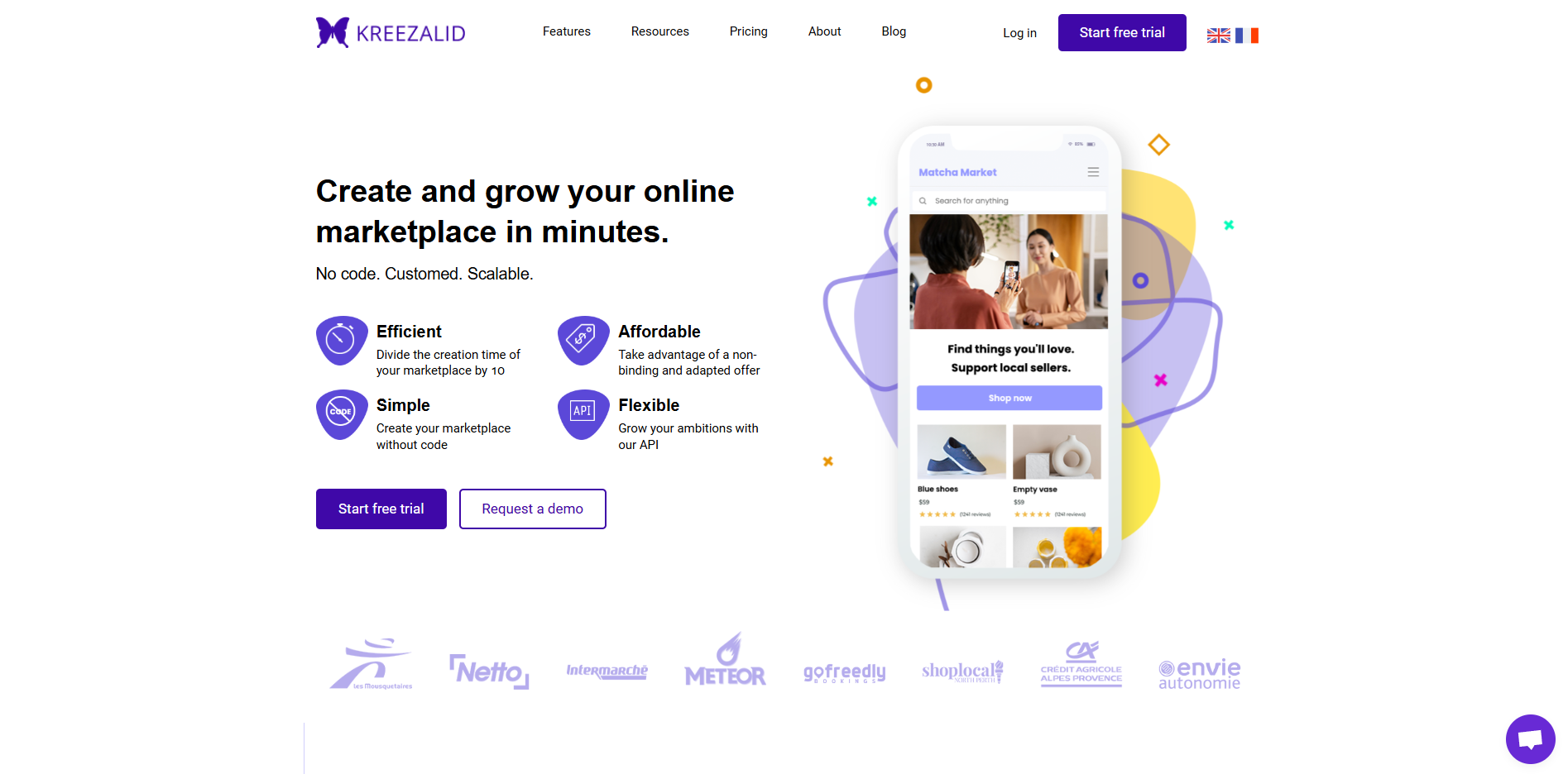
Kreezalid is a no-code SaaS platform for launching multi-vendor marketplaces quickly, designed for entrepreneurs and businesses seeking a hassle-free solution. It supports products, services, and rentals with customizable workflows, integrated payments, and mobile-responsive designs perfect for testing ideas or scaling existing operations without technical overhead.
Highlights:
- Build a marketplace in days using drag-and-drop tools and ready-made themes.
- Works for B2B, B2C, and C2C models, including rentals and digital products.
- Seamless Stripe and Mangopay integration for escrow and commission management.
- Expand functionality via API or plugins (reviews, geolocation, subscriptions).
Pricing:
Kreezalid offers three plans: Starter (€249/month), Scale (€299/month), and Advanced (€379/month). Includes unlimited listings (Scale+), vendor tools, and payment integrations (Mangopay). No transaction fees (3-4% payment gateway fees apply). 10% discount for annual billing. Free 7-day trial available. Hosting and updates included.
Arcadier
G2 Rating: 4.3 based on 6 reviews
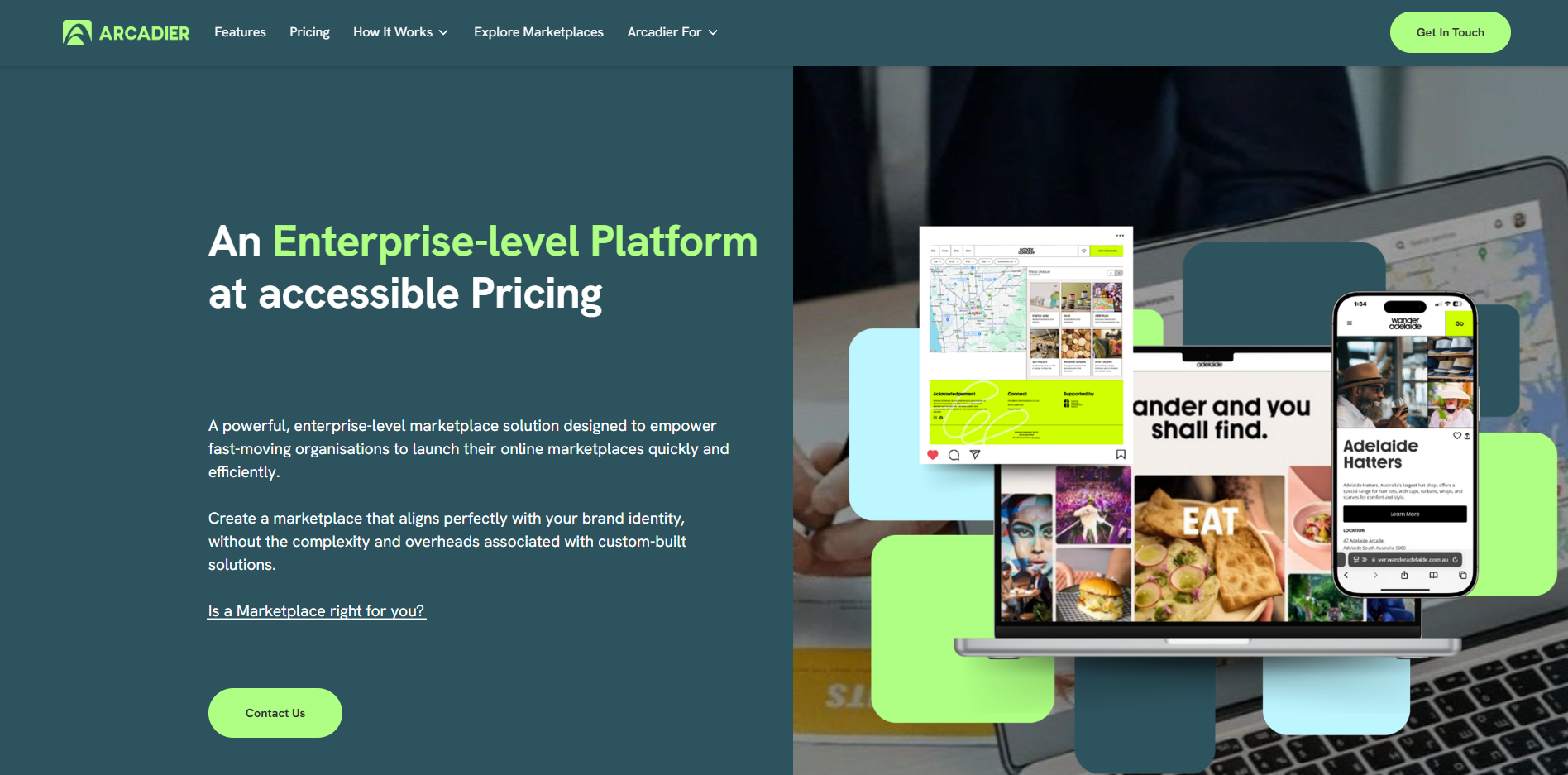
Arcadier is an enterprise-grade SaaS platform for building multi-vendor marketplaces quickly, offering white-label solutions for retail, services, rentals, and B2B trade. Designed for fast deployment, it combines pre-built templates with deep customization via APIs, enabling businesses to launch scalable marketplaces without lengthy development.
Highlights:
- Go live in weeks (not months) with ready-to-use templates for products, services, or rentals.
- Handles vendor onboarding, commission splits, and multi-gateway payouts (Stripe, PayPal).
- Tailored for auto parts, real estate, retail, and economic development hubs.
- Extend functionality with custom integrations for unique workflows.
Pricing:
Arcadier offers tiered pricing: $1,500/month for basic marketplace features and $2,500/month for advanced solutions including workflow automation and priority support. Both plans include rapid deployment, unlimited products, and marketing tools. Enterprise custom pricing available.
EGSMA
Online Rating: Nil
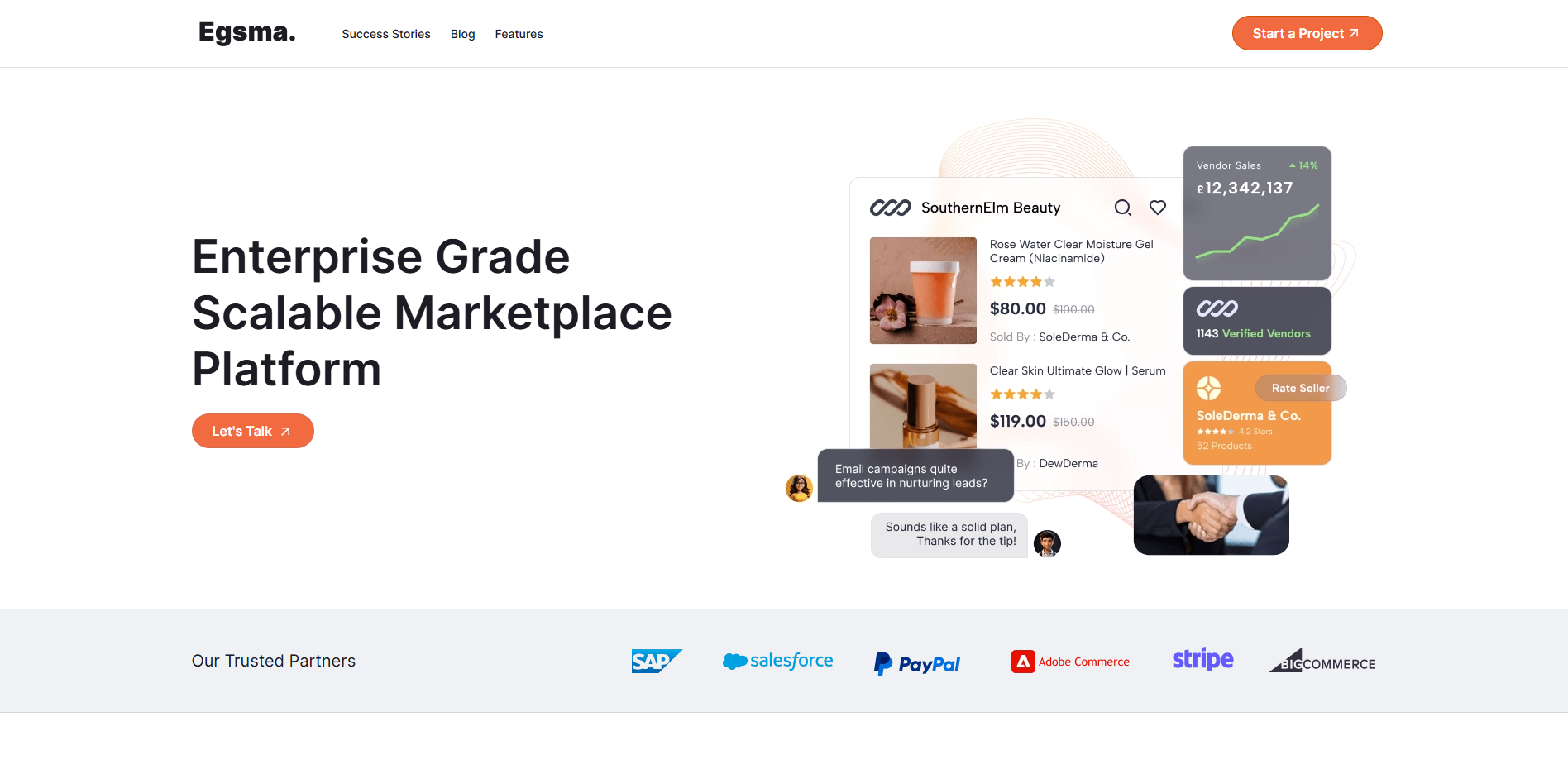
EGSMA is an enterprise-grade, scalable marketplace platform developed by Webkul, designed for businesses needing high-performance, customizable multi-vendor solutions. Built with a composable commerce architecture, it supports B2B, B2C, and hyperlocal marketplaces with features like real-time inventory, split payments, and vendor onboarding. Ideal for businesses prioritizing data control and global scalability, EGSMA offers self-hosted and cloud deployment options.
Highlights:
- Handles high traffic and complex workflows with near-zero downtime, suited for large marketplaces.
- Admins can set product, category, or seller-specific commissions with automated payouts.
- Sellers get dedicated dashboards, shipping management, and performance analytics for growth.
- Modular design allows businesses to integrate only needed features (example: RMA, auctions).
Pricing:
EGSMA uses custom pricing tailored to each project. No standard plans are listed publicly – interested users must “Start a Project” to register and receive a personalized quote. This approach allows flexible solutions for marketplace businesses of all sizes, with costs scaled to specific requirements and features needed.
Conclusion
Launching a successful multi-vendor marketplace goes far beyond selecting a platform with basic features. You need a solution that supports efficient vendor management, transparent commissions, scalable performance, and seamless customer experiences.
Whether you’re building a niche digital marketplace or a large-scale product hub, the right platform depends on your business goals, technical resources, and long-term growth plans.
We have compared the top multi-vendor eCommerce platforms, highlighting their strengths in vendor tools, pricing, and flexibility.
As you evaluate your options, think about how your platform choice will impact daily operations, not just today, but as your marketplace grows.
Don’t forget: your theme plays a big role too. Lightweight, performance-optimized themes like Blocksy can improve load times, enhance vendor dashboards, and deliver a smooth shopping experience across devices.
Choosing the right combination of platform, theme, and vendor strategy sets the foundation for a marketplace that thrives long-term.

